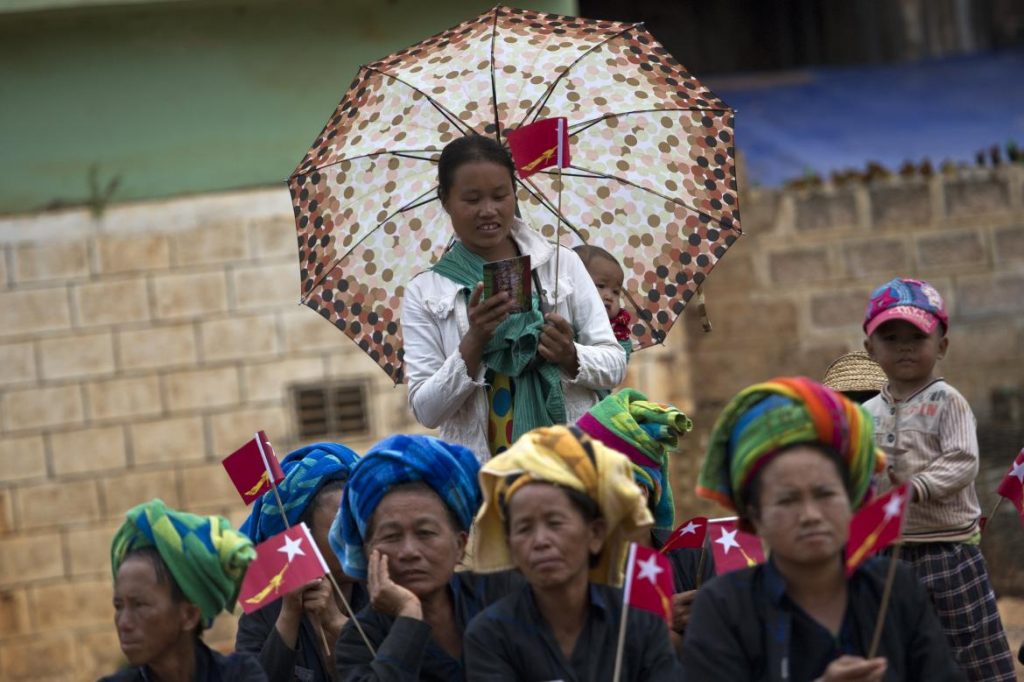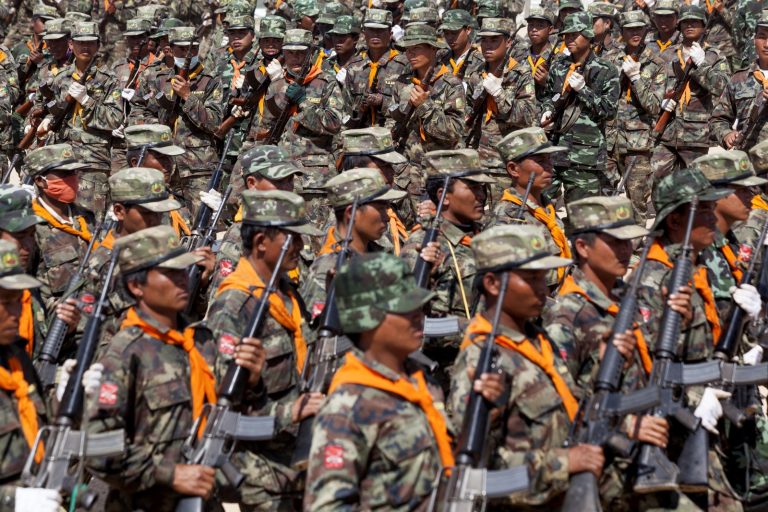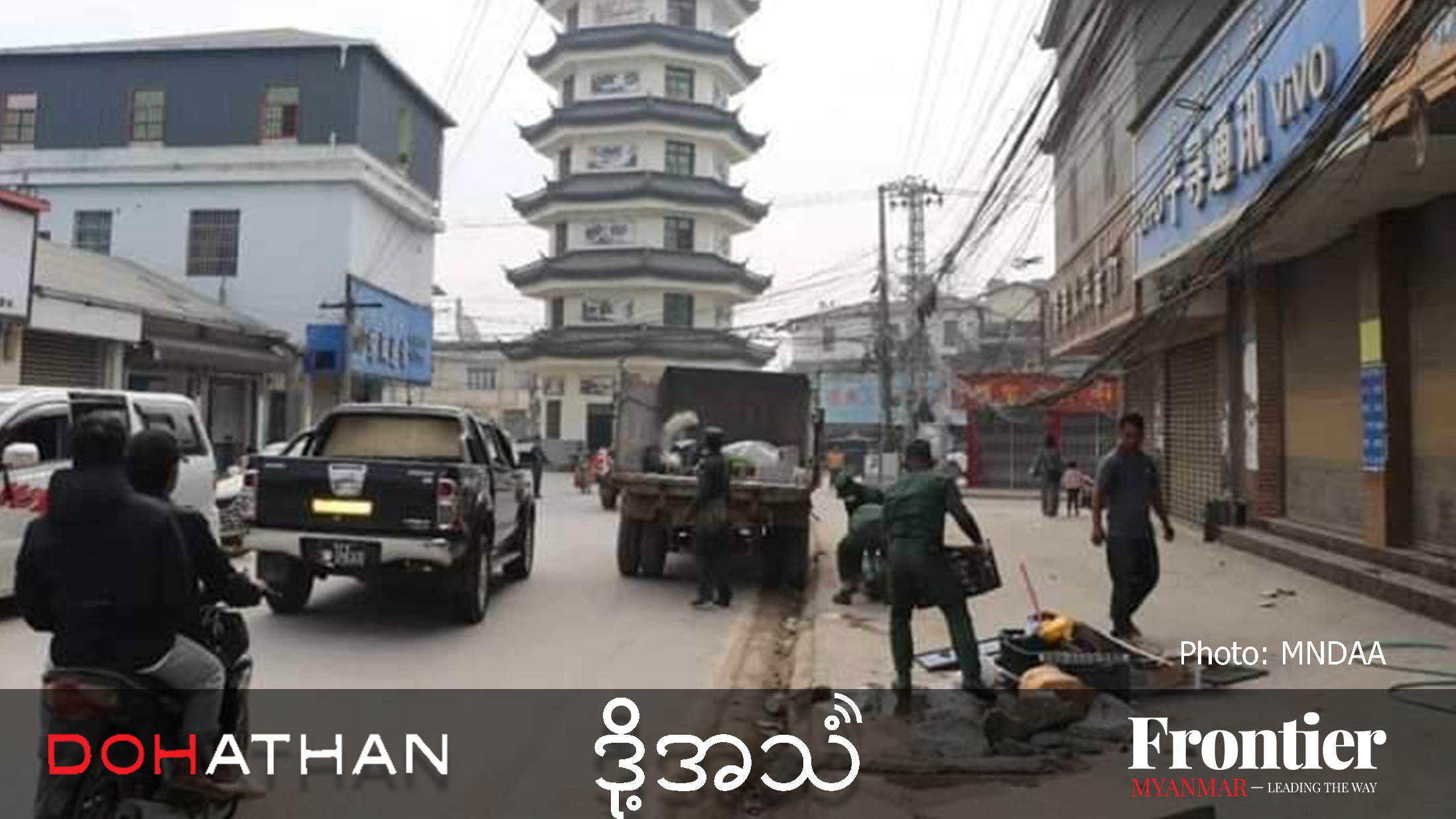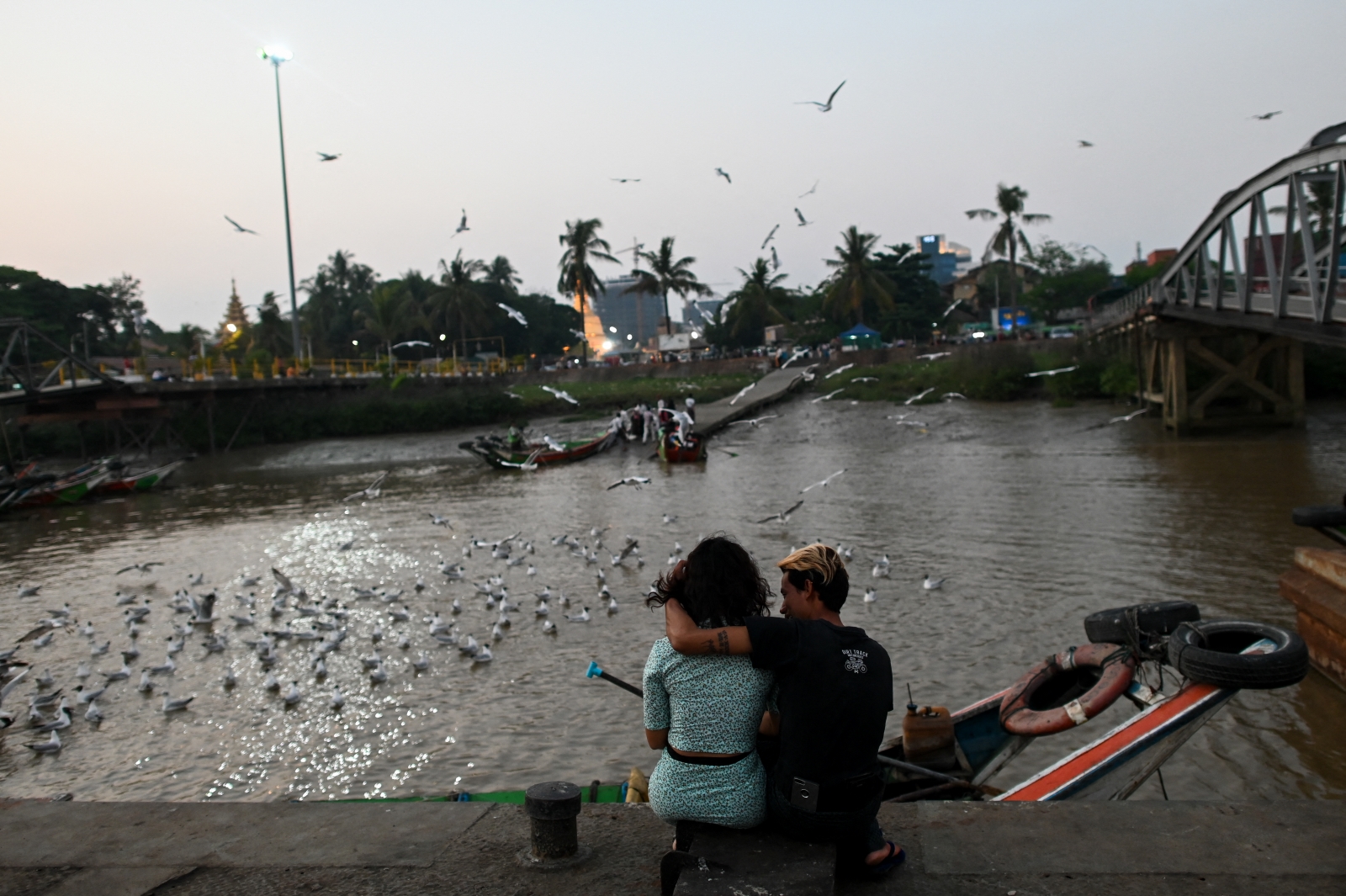Daw Aung San Suu Kyi reacts to disaffection over her decision to spurn alliances with ethnic-based parties during a pre-campaign visit to southern Shan State.
The National League for Democracy’s refusal to form election alliances with parties representing ethnic minority groups had party leader Daw Aung San Suu Kyi on the defensive during a pre-campaign visit to southern Shan State this month.
The opposition party leader acknowledged resentment about the NLD’s decision in a speech at Hopong Township in the Pa-O Self Administered Zone on September 6, two days before the official start of campaigning for the November 8 election.
“The NLD’s decision to contest seats in ethnic areas has been questioned,” Daw Aung San Suu Kyi told a crowd dominated by Pa-O, many of them taking the opportunity to see the party leader during her first visit to the region.
“My answer to you is that if we want democracy at the Union level, if we want change at the Union level, we also need democracy at the state and regional level,” she said.
“That’s why I am here, for the sake of our future Union, and if we unite, this country will achieve democracy and stand as a democratic state.”
Support more independent journalism like this. Sign up to be a Frontier member.
Daw Aung San Suu Kyi added that the NLD had as much right to field candidates in ethnic areas as the ruling Union Solidarity and Development Party.
“The USDP will also contest in these areas, so why shouldn’t we?’ she said.
The main ethnic-based party in the region is the Pa-O National Party, with which the USDP has agreed not to contest seats in the self-administered zone, comprising Hopong, Hsihseng and Pinlaung townships.
The NLD leader made several references during her speech to a “federal Union” but there were indications its meaning was unclear to her audience.
“We don’t understand political words; we know only that we want improvement in our daily lives, our food and our children’s education,” Khun Soe Min, told Frontier after the speech. “We will vote for the candidate who can make our lives better,” the Pa-O villager said.
In common with many rural areas, development is a priority issue in the self-administered zone, but its residents are sceptical about what big parties can deliver.
“Candidates from [national] parties are coming to us and promising so many things,” Khun Than Kyaw said after Daw Aung San Suu Kyi spoke in Hsihseng Township on September 5. “But our experience of the past five years is that political parties did not bring much development,” he said. “We trust our ethnic people, so we will vote for our people.”
The Pa-O National Organisation, which in 2010 won four seats in the Union parliament and six seats in the 143-member Shan State hluttaw, is contesting all 10 constituencies in the self-administered zone and six constituencies elsewhere in Shan State. It is also fielding a total of six candidates in Bago Region and Kayin and Mon states, where there are sizeable Pa-O populations.
The party was unopposed in the four Union parliament seats it contested in 2010. Apart from the NLD, it will be competing in the self-administered zone this year against the Shan Nationalities Development Party and the Shan National League for Democracy.
“We know our people and our people know us, and our slogan for the election is about regional development,” Saw Kyaw Win, an executive committee member of the Pa-O National Organisation, told Frontier in an interview at his home in the Shan State capital, Taunggyi, on September 6.
“Ethnic people don’t even know about NLD candidates in their constituencies at Hopong and Hsihseng; they only know about the Pa-O National Organisation and its candidates,” he said.
The party selected some of its candidates from grassroots groups such as the Pa-O Youth Network who enjoyed considerable local support, he said.
U Saw Kyaw Win said even though the region needed more development, he welcomed progress made since the Pa-O National Organisation signed its most recent bilateral ceasefire agreement with the Union government in August 2012.
“Our people know who can change their environment and who they really need [as parliamentary representatives],” he said.
The visit to the area by Daw Aung San Suu Kyi would make no difference to the status quo, U Saw Kyaw Win said.
The NLD’s main rival was more critical of the visit. A member of the USDP’s executive committee in Hsihseng Township, U Shwin Myat Thu, described the visit by the NLD leader as “nonsense” and “wrong”. People had only attended the rallies ad- dressed by Daw Aung San Suu Kyi “to see how she looks,” he said.
“Ethnic people know only the ethnic party candidates, and NLD candidates cannot win in this region,” U Shwin Myat Thu said.
Asked for a response to the criticism of Daw Aung San Suu Kyi’s visit, U Thura Han Htun Aung, who is standing for the NLD in the Amyotha Hluttaw constituency of Loilem and Linkhay, declined to comment, citing the gag order imposed on the party’s candidates by Daw Aung San Suu Kyi for the duration of the campaign.
“Because of what Auntie [Daw Aung San Suu Kyi] told us we can’t express our opinion and we can’t keep in touch with our voters through the media,” U Thura Han Htun Aung said.







